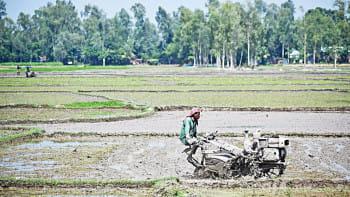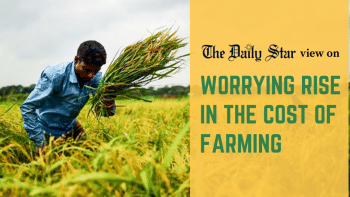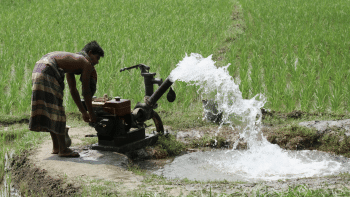A success story that remains incomplete

The new year has come with some positive news about the country's agriculture sector. According to the UN's Food and Agriculture Organization (FAO), Bangladesh is one of the top 10 countries in the world in producing at least 18 crops. The success has come despite a number of challenges including the ever-shrinking farmland coverage, increasing extreme weather events, etc. The sector has provided livelihood opportunities to a large number of people and contributed 13.47 percent of our GDP, says a report by this daily.
Bangladesh produced 961.46 lakh tonnes of 28 major crops in 2022-23—a 44 percent increase in production from the 2012-13 yield of 667.53 tonnes—thanks to farm-friendly policies adopted by the authorities, such as reducing fertiliser prices and facilitating the expansion of agricultural research. We have been earning foreign currency by exporting crops as well. According to the Export Promotion Bureau, Bangladesh made $843 million from the export of agricultural products in 2022-23. There is no doubt that concerted efforts from the relevant stakeholders have made this possible. However, have all the stakeholders been able to share its benefits equally?
The answer, sadly, is "No." On the one end of the supply chain stand farmers, who are routinely deprived of fair prices for their produce. On the other end stand ordinary consumers, who are forced to pay hefty prices despite high food production. Conveniently sitting between them are brokers and middlemen, who manipulate both camps to satisfy their greed. Things have been quite grim as a result. Inflation has spiralled out of control, leading to astronomical prices of essential food items. Often, unscrupulous traders manipulate prices using various tricks adding to the struggle of ordinary consumers, particularly low-income groups whose income has remained stagnant despite higher living costs. This is evidenced by a survey conducted by the Bangladesh Bureau of Statistics (BBS) in June 2023, which found that one in every five households experienced some level of food insecurity in recent times.
The story of our phenomenal success in agricultural farming will remain incomplete unless vital stakeholders, including farmers and ordinary consumers, are able to enjoy it to the fullest. We, therefore, urge the authorities to prioritise addressing areas of exploitation and manipulation in the agriculture sector, so that fair prices can be ensured on both ends of production and consumption.


 For all latest news, follow The Daily Star's Google News channel.
For all latest news, follow The Daily Star's Google News channel. 









Comments